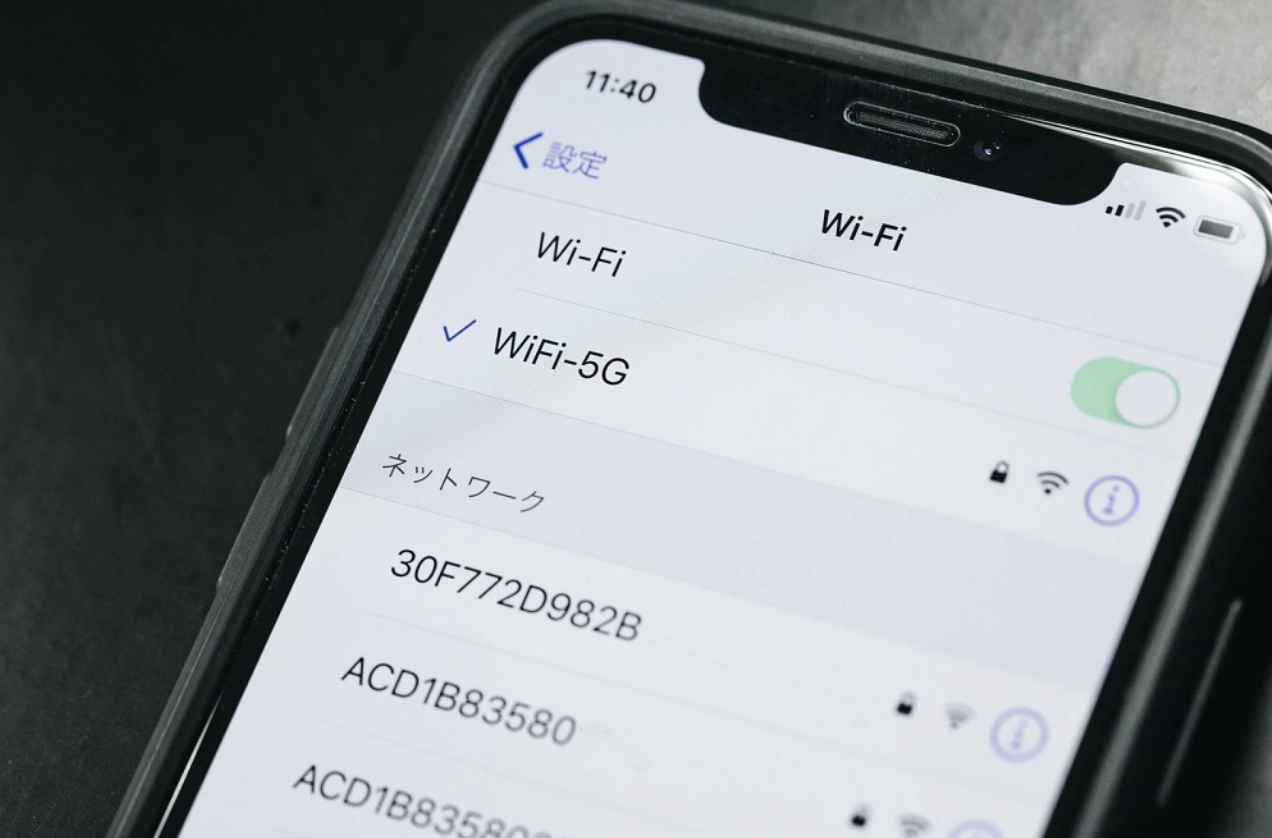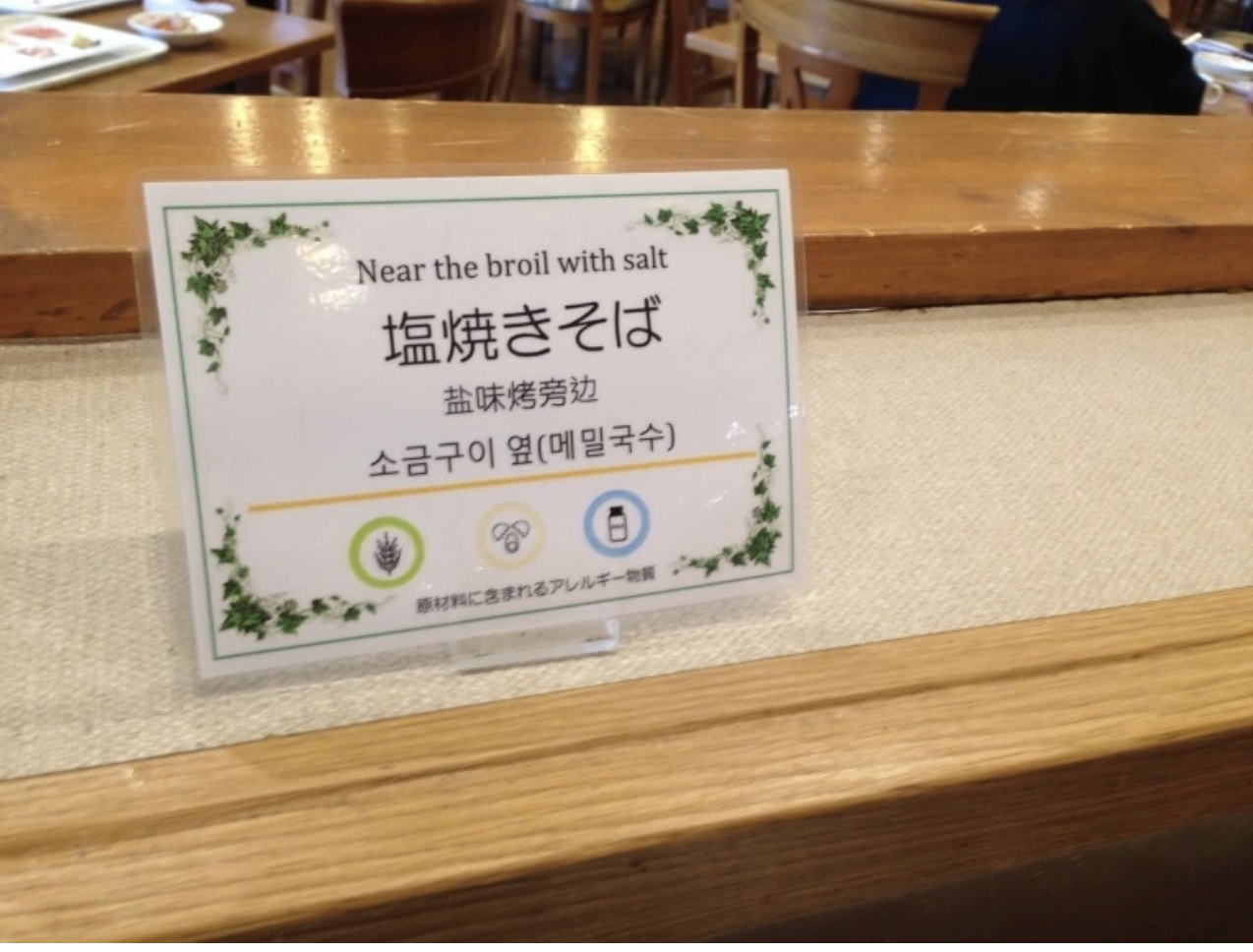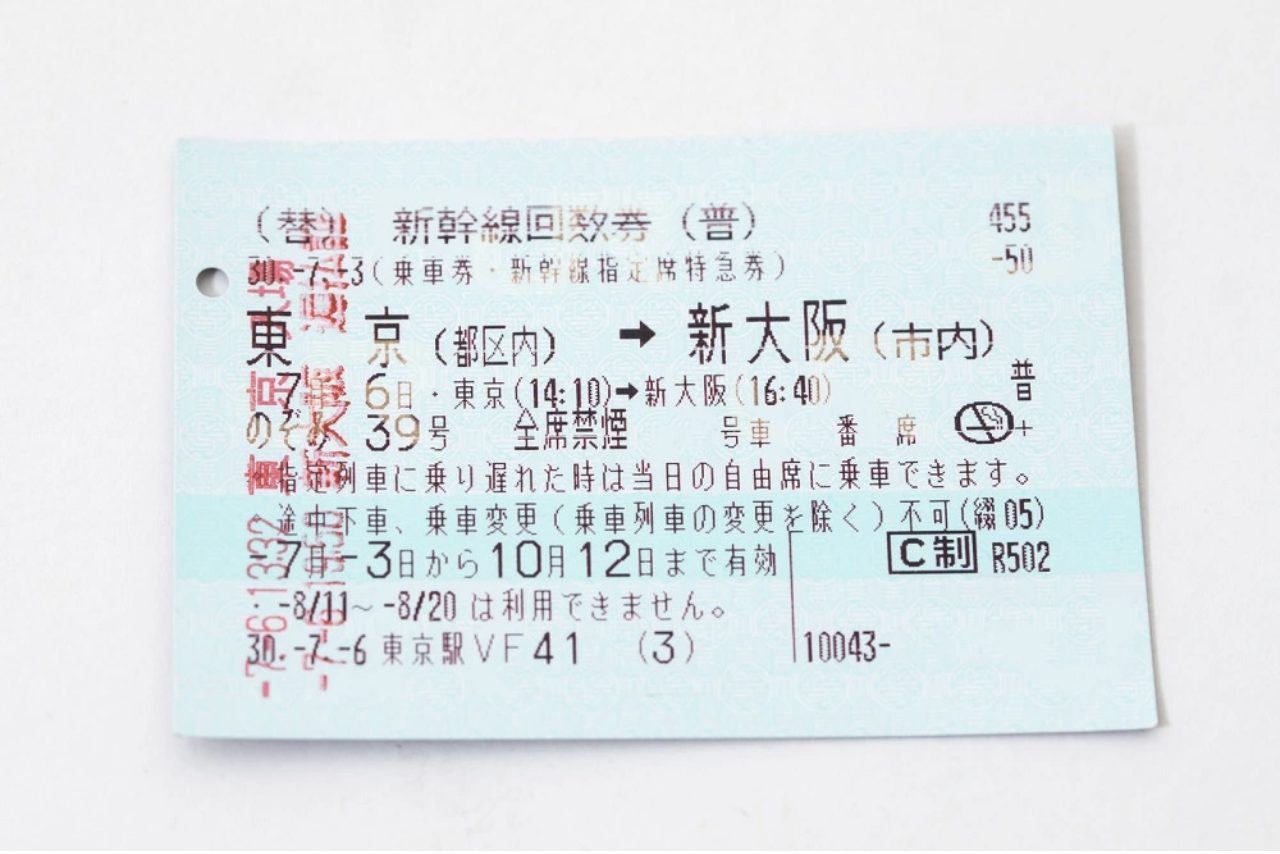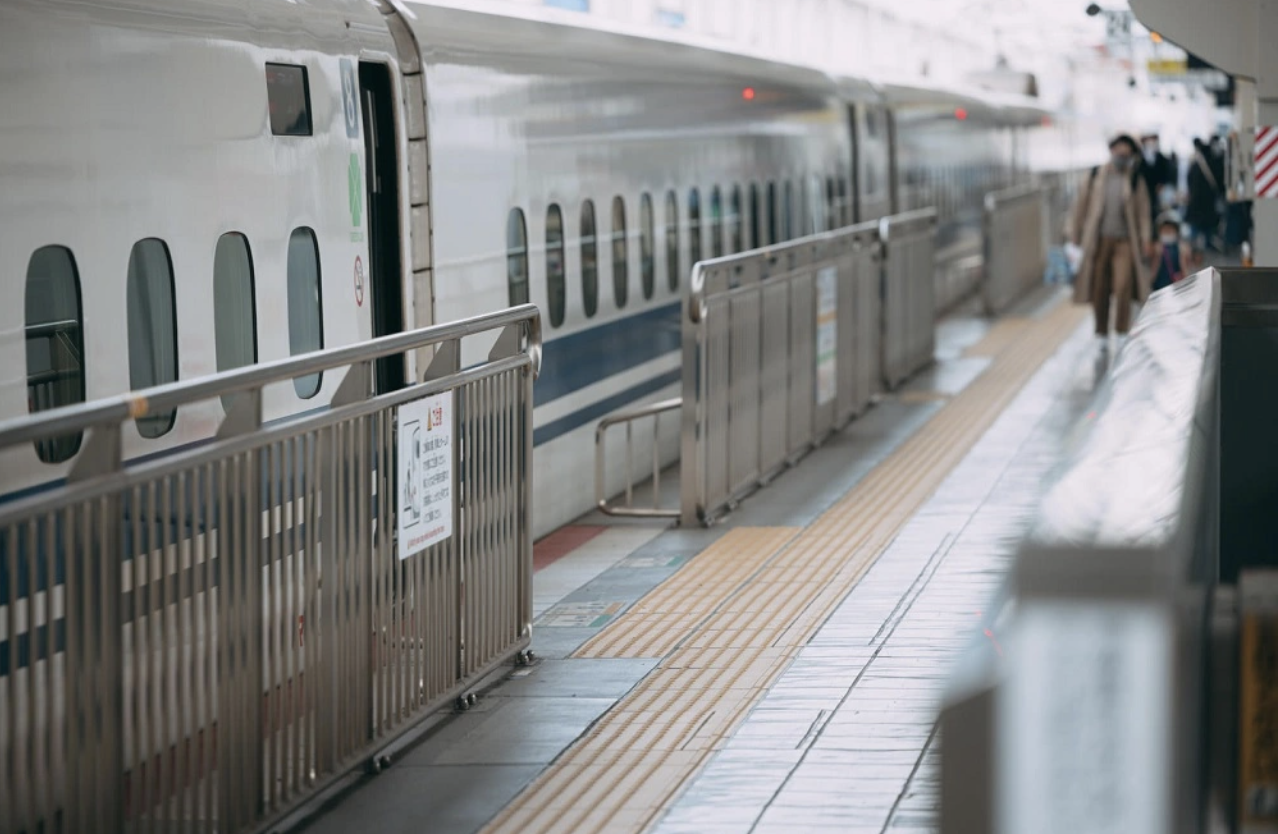Japan is an amazing place to visit. Whether you want to see historical architecture, modern pop culture, breathtaking natural scenery, or just eat some really, really good food, Japan’s myriad wonders have turned it into a top destination for international travelers.
Of course, Japan isn’t perfect, and so not every trip to the country is nonstop enjoyment. Japanese inbound tourist-focused travel website Good Luck Trip recently conducted an online survey asking people who’ve visited Japan what sort of inconveniences or problems they encountered. Responses were collected from 891 participants (106 using English, 102 Korean, 103 simplified Chinese, and 580 traditional Chinese), and the organizers have released the top 10 results.
Let’s take a look at the top 10.
-
Wi-Fi environment (31.5 percent of respondents)
-
Not being able to communicate with facility staff (20.2 percent)
- Lack of non-Japanese signage and difficulty understanding it (17.5 percent)

At the top of the list, chosen by 31.5 percent of respondents, is “the Wi-Fi environment.” Free Wi-Fi in public spaces isn’t as easy to find in Japan as it is in some other countries, and when entertainment facilities or restaurants do offer it, signage for it usually isn’t very prominent, and the explanations are often only in Japanese.
Speaking of language barriers, the number-two problem foreign travelers ran into was “not being able to communicate with facility [restaurants, shops, etc.] staff,” followed by “lack of non-Japanese signage and difficulty understanding it.” While major shopping centers and chain restaurants often have information desk receptionists and menus that can provide guidance in English, Chinese, or Korean, smaller independent businesses often only have Japanese-speaking staff.
▼ And, as anyone who’s traveled much in Japan can tell you, even when translations are provided they’re not always the most easily intelligible.

-
Difficulties using public transportation (approximately 16 percent)
- Lack of trash cans (approximately 16 percent)
Number 4 is a bit of a head scratcher, as Japan’s public transportation system is regularly praised by overseas visitors for its punctuality, convenience, and cleanliness. The vagueness of the category doesn’t offer much of a hint as to what the specific complaints were. Maybe it’s an extension of the language barrier-related problems mentioned at numbers 2 and 3 on the list, or maybe it’s just a matter of how navigating a dense train and subway network in a town you’ve just arrived in as a tourist is always a little tricky, regardless of the country you’re in.
Japan’s lack of public trash cans is something visitors have been grumbling about for decades. Oddly enough, it’s more or less a non-issue for locals. Japan generally finds it unmannerly to eat while walking, so most snacks are consumed either at the store where they were purchased (and where trash can usually be thrown away) or at home, and on those occasions that Japanese people are going to be eating in a park or something, it’s a decision they usually make with the understanding that they’re going to need to carry their trash home with them.
-
Difficulty using mobile payment apps (approximately 15 percent)
-
Difficulty using credit/debit cards (approximately 15 percent)
-
Lack of places to smoke/understanding where to smoke (approximately 14 percent)
-
Exchanging currency (approximately 14 percent)
- Discount train/subway tickets (approximately 9 percent)

Next we have a pair of complaints connected to Japan’s continuing love of cash, or really three if we count difficulties in finding a place to exchange foreign currency. It’s worth noting that cashless payment apps are becoming more common in Japan, but that doesn’t necessarily meant that whatever platform you normally use in your home country will work in Japan.
Lack of places to smoke is a confusing entry, as even though Japan has been expanding restrictions on where smoking is allowed, many buildings have dedicated smoking rooms, and there are also smoking spaces set up near many train stations. Similarly, the nature of the abstract “discount train/subway tickets” problems is a little hard to suss out, seeing as how Japan has a huge assortment of discounted and unlimited-ride tickets offered at the city, regional, and national levels, but maybe the complaint is about the difficulties travelers had in figuring out which was best for them.

Luckily, there are ways to avoid or alleviate most of these issues. Most major sightseeing areas have tourist assistance desks that can provide guidance in English or other non-Japanese languages, including helping you understand how to get where you need to go on the train. Japan’s low crime rate means there’s relatively little risk to exchanging a large sum of cash at the airport and carrying a lot of it on yourself so you don’t have to worry about whether or not a roadside taiyaki stall is equipped to accept your credit card or payment app. And as for the lack of trash cans? Stop in any Daiso or other 100 yen shop, get yourself a pack of plastic bags, and put a few in your bag every day before you go out sightseeing in case you don’t find a trash can until you’re back at your hotel.
Because even if Japan isn’t a convenient place to travel 100 percent of the time, it is 100-percent worth traveling to.
Source: PR Times
Insert images: Pakutaso, SoraNews24
Read more stories from SoraNews24.
-- 10 best Studio Ghibli anime, as picked by Japanese fans– Different ages have different answers
-- Over 30 percent of surveyed Japanese managers feel intense stress from working with foreigners
-- Why Does Engrish Happen in Japan? – Breakfast buffet edition
© SoraNews24















19 Comments
Login to comment
divinda
So to summarize, the main complaint is: "Japan is too foreign and not enough like my home country."
virusrex
A list full of surprises... not. Quite predictable and understandable, relatively low support for other languages, complicated procedures for doing certain things and lack of some support that is common in most other countries (like wifi and trash cans). It is fortunate (for the industry) that the appeal of the country is still strong enough to attract foreign tourists even when these kinds of annoyances are so common.
wolfshine
I don't share a lot of these concerns. However, there a few things that Japan absolutely needs to address like yesterday.
Better support for contactless credit card payment. Japan continues to resist this, and despite virtue signalling for four years about how much they wanted to reduce the spread of the virus, it's shocking this wasn't implemented on a wider scale. Most credit card companies offer the ability to tap the card or smartphone app against the reader, eliminating the need to swipe the magnetic strip, insert the chip, or sign at the end. While most combinis allow this now, many major restaurants, cafes, and stores still don't. What's amazing is that their Panasonic terminals are technically capable of doing it, but the feature has been disabled by the merchant, likely to save a buck. This is a terrible philosophy, because contactless offers the cardholder a means to pay with their phone via an app even if their physical card gets lost, damaged, stolen, or hacked. I don't think a lot of people here even realize that.
Similarly, unlike with the London Underground, you still can't tap your credit card at the turnstiles to pay the transit fare in Japan. Instead, you have to go through the trouble of acquiring a Suica or Pasmo card and loading it up constantly. While I applaud Japan's IC transit cards for being accepted at a variety of merchants, this model of payment is incredibly outdated and fading away in much of the modern world.
It seems like Japan is still futily trying to prop up their domestic competitors like Suica and PayPay instead of embracing better international solutions. I can respect this ideology on some level, but it's time for them to invest more heavily in better solutions.
Moonraker
How dare they find any negatives.
BTW Years ago, there used to be rubbish bins all over the place but "terrorism" became the excuse to remove them. It saved money for commercial enterprises. I don't know what happened to the budgets previously used for emptying them in public facilities. Then it was decided to create the notion/excuse that Japanese like to carry their rubbish home. There is still one bin in my local park and it is almost always overflowing.
Euro Dude
Those inconvenience are not only for tourists, but also for the locals, don't worry.
Person ally I never understood why the English translated signs are not only that bad, but so totally overly rubbish. Even Google Translate does a very good job nowadays...
TaiwanIsNotChina
Nonsensical restaurant prices is a big one but Japan would have to get rid of the omotenashi inflating prices to reign that in.
djdenki
I feel that there a lot of things listed here that definitely need improvement and Japan has been notorious for procrastinating in that regard.
At the same time, there is no shortage of people who travel to foreign destinations without doing adequate research. I can't count how many times I would observe foreign tourists in Japan gripe about things that could have easily been avoided if they took the time to look at a youtube vid, a travel blog, wikipedia, etc.. If this was 20 years ago, I'd have a little bit more empathy, but we (myself included) are often guilty of not utilizing the ultimate knowledge devices in our pockets to do proper preparation.
kohakuebisu
Anyone who can afford to get on a plane can afford a cheap SIM to put in their phone. I don't see why they should get the Internet for free.
Jind
I have been to many countries the languages I do not know but have been able to enjoy my times there. Japan may not be any different. The Tourists have to adjust to the local cultures and ways of living.
La vie douce
Number 4 is a bit of a head scratcher, as Japan’s public transportation system is regularly praised by overseas visitors for its punctuality, convenience, and cleanliness. The vagueness of the category doesn’t offer much of a hint as to what the specific complaints were. "
I think most tourists can get their head around the train , subway network...buses on the other hand.
Dale Spenser
Go somewhere else then. Part of the charm is not having every single convenience of home spoon-fed you when traveling abroad.
dmatth
Ummm ... sorry but if you wanted things just as they are at home, maybe you shouldn't leave home ???
Stephen Chin
Is Japan complicated?
Yes.
So complicated?
YES!
So Very Complicated??!!
YES!! YES!!!
Kniknaknokkaer
People do not really expect to take their rubbish home with them do they, there are convenience stores with rubbish bins everywhere...
Khuniri
The Korean in the 焼きそば sign is also amusingly wrong, as is, I think, the Chinese.
Coulda been
What a load of absolute codswallop. If you can't handle some inconveniences of a foreign country stay at home.
SapperJon
I love that I can't use English everywhere and things can sometimes be a challenge, but that is part of the fun of traveling. Now days of course your mobile phone is your friend with speaking and written translation Apps available. Wi-Fi is not a problem if you plan ahead and buy a data only sim card which is delivered to your home address. As for rubbish I either deposit at the same chain of convivence store that I purchased it at you take it back to our hotel.
The one thing I always try to do is be polite and not cause offence.
gokai_wo_maneku
And yet! Japan has opened up this year and will make way for 10,000,000 tourists next year, and returning to 20,000,000 per year as before COVID. If things were so bad, this wouldn't happen.
GBR48
Part of the fun of visiting Japan is working out how to do stuff and coming to terms with the differences. It's an adventure. You are stepping out of your comfort zone.
Free WiFi can have security issues. Pre-order a pocket WiFi unit and collect it on arrival at the airport. Many AirBnBs offer one as part of the deal.
Finding smoke-free hotels is more of a problem. The stink from the smoking areas usually permeates the entire building. Check the reviews.
The trains are largely amazing - many have English announcements - and SUICA is easy to use. Cash is a good default. I don't even use payment apps at home. Take enough cash for your trip and carry enough with you to get back to your apartment, wherever you are. Tech is great, but less resilient and it is crazy to rely on it, especially abroad. Your phone is less likely to be pinched in Japan but you might drop it, so make sure you can function without it.
Obtain travel insurance before you arrive, but don't expect it to be much actual use other than offering a small refund when you get home. Research access to Japanese medical care and expect to pay quite a lot for it. Keep your receipts.
Beware of the 'winter heat': hotels and trains are heated to high temperatures in the winter, so be ready to strip down to your last layer as soon as you board a train.
The only issue with trains and languages is that ad hoc announcements (by drivers or guards) are likely to be Japanese only. If a number of people respond to an announcement by getting up and leaving the train, do so too, even if you don't know why. Rural/private lines may be Japanese only. Just plan your trip in advance. It's all part of the fun.
You should try the commuter crush, as an experience. If you are easily spooked, do this on an overland train in daylight, and stand. I'm quite claustrophobic, but was OK even in a fully jammed Yamanote carriage without room to exhale. I only hit my limit and cut my journey short when sitting on a packed evening commute on an underground train that kept stopping between stations (announcements in JP only). And then the lights started to flicker off.
Be polite, be patient, and you'll be fine.